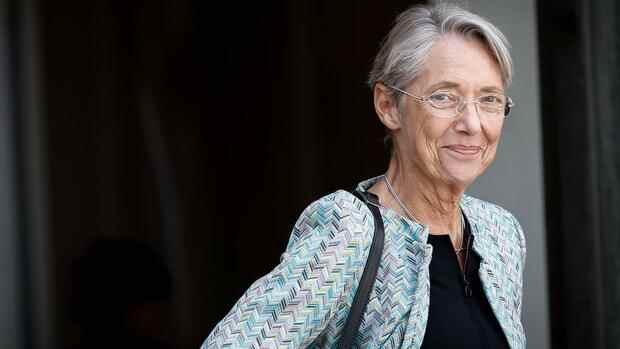The previous Minister of Labor will become the new French Prime Minister.
(Photo: IMAGO/PanoramaC)
Paris France is getting a female prime minister for the second time in history: President Emmanuel Macron appointed the previous Labor Minister Élisabeth Borne on Monday evening as part of a government reshuffle after his re-election. The Élysée Palace announced that Borne had been commissioned to form a new government.
With the change at the top of his government, Macron is hoping for a breath of fresh air for the general elections in June, where he needs to achieve a majority with his center alliance in order to implement his agenda in his second term. It is the second time that France has had a woman prime minister – after Edith Cresson, who only served for a few months under socialist President François Mitterrand in the early 1990s.
Macron’s former Prime Minister Jean Castex had previously submitted the resignation of his government. This formal step had been expected for days. Macron thanked Castex, who had led the French government since July 2020. “For almost two years he has acted with passion and commitment at the service of France,” the President wrote on Twitter.
Borne had long been close to the Socialists before joining Macron’s new party, La République en Marche (‘The Republic in Motion’). Under the president, the 61-year-old was initially responsible for the transport department, then worked as environment minister and finally as labor minister. Before joining Macron’s government, she headed the Paris public transport company (RATP).
Top jobs of the day
Find the best jobs now and
be notified by email.
Following her appointment as Prime Minister, Borne said she wanted to make the fight against climate change a priority. Politicians must “react faster and more strongly” to the ecological challenge. Referring to her role as a woman at the top of government, Borne said she wants to encourage all girls to “go to the end of their dreams”.
France has a tradition of reshuffling the government with a new prime minister after the presidential election. Macron was lacklusterly re-elected in April. As in 2017, he won the runoff against the right-wing nationalist Marine Le Pen, who received more votes than ever before this year.
>> Read also: Do not discourage neighboring countries of the EU – Scholz open to Macron’s ideas on the future of Europe
The left-wing fringes in France are also gaining strength: there, left-wing populist EU critic Jean-Luc Mélenchon has forged a new alliance with moderate Socialists and Greens that could pose a threat to Macron in the parliamentary elections. Mélenchon won 22 percent in the first round of the presidential election, missing out on last month’s runoff against Macron, just behind Le Pen.
In the ranks of the Socialists and Greens there was also clear criticism of the merger with Mélenchon’s left-wing party “La France Insoumise” (“Indomitable France”) for the parliamentary elections. With Borne’s nomination, Macron is now sending a signal to centre-left voters, many of whom voted reluctantly for him in the presidential election, in order to prevent Le Pen from winning the second round.
The alliance of the left-wing populist EU critic could be dangerous for the presidential party in the elections.
(Photo: Reuters)
The outcome of the parliamentary elections is of great importance to Macron. Without his own majority in the National Assembly, the president’s influence would shrink: Macron would then have to involve political opponents in legislation. In addition, he would have to reshuffle the government again in this case.
The Prime Minister would then probably come from a different political camp and would be the President’s opponent in domestic politics. “Cohabitation” is the name of this situation, a kind of grand forced coalition that had previously existed three times in the Fifth Republic, which was founded in 1958.
Like the presidential election, the French parliamentary elections take place in two rounds: if none of the candidates in the constituencies get an absolute majority in the first round on June 12, a second vote will take place a week later. The difference to the presidential election: not only the two best-placed qualify, but all candidates who have received at least 12.5 percent of the votes of the registered voters. In the second round, a relative majority is sufficient.
More: Do not discourage neighboring countries of the EU – Scholz open to Macron’s ideas on the future of Europe
